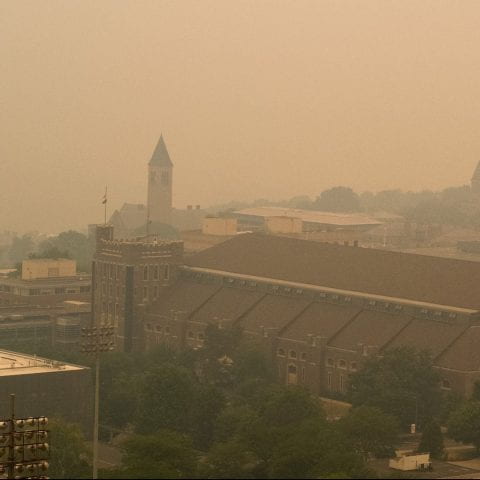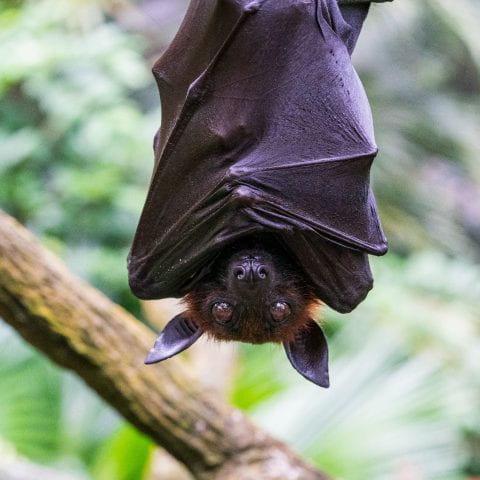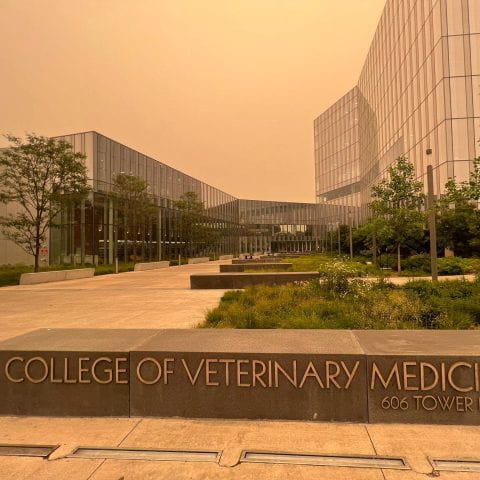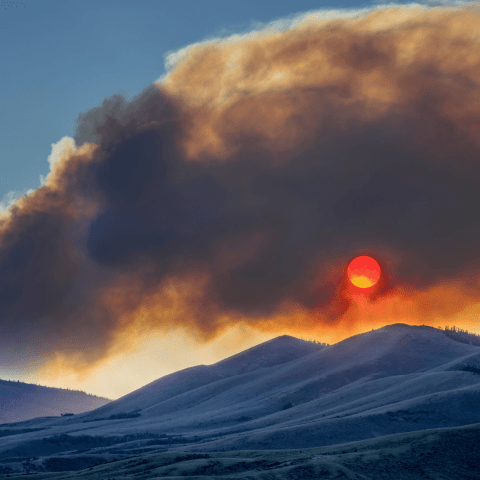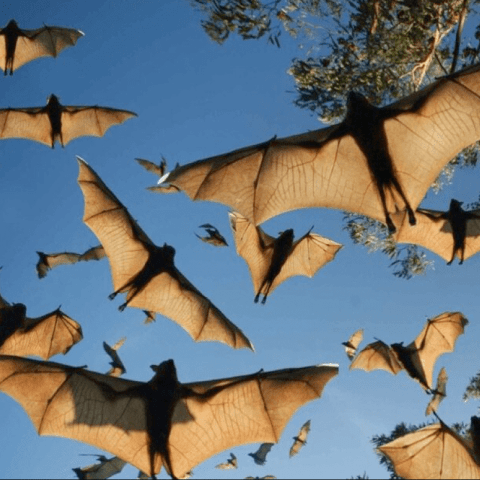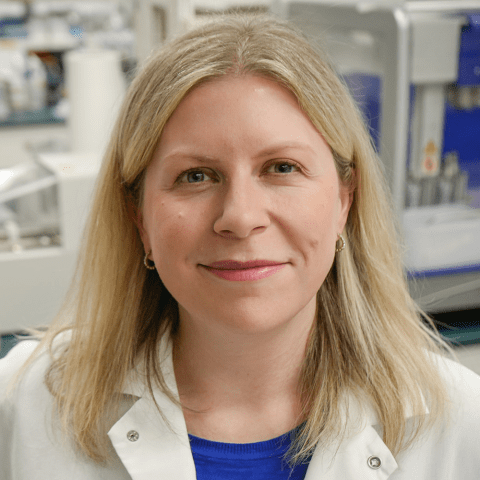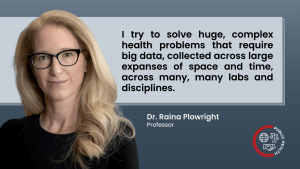Emergency Preparedness & Management
When wildfires draped heavy smoke over much of the state this summer, nearly half of all New York counties lacked real-time information to determine air quality. Now, a Cornell researcher is leading an effort to install air-quality sensors in 28 upstate counties where there were none. As of late October, the expansion effort – a partnership between the Department of Public and Ecosystem Health in the College of Veterinary Medicine (CVM) and Cornell Cooperative Extension (CCE) – is nearly complete. “When the wildfire smoke hit New York, I received questions from partners around the state,” said Alistair Hayden, assistant professor of practice in the Department of Public and Ecosystem Health…
The health and economic impacts from infectious disease emergence are substantial Pathogens that are transmitted, or spill over, between animals and people are the source of most emerging infectious diseases in humans Indeed, spillovers sparked five viral pandemics...
By this point, the evidence is clear: The Covid-19 pandemic can be traced back to a bat virus The same was true for the 2003 SARS coronavirus outbreak In such outbreaks, we are unlikely to be able to determine whether the spillover happened because someone ate or...
Dr. Alistair Hayden, assistant professor of practice of Public and Ecosystem Health at the Cornell University College of Veterinary Medicine, discusses the impacts of Canada’s wildfires in the Ithaca region and New York state, noting how current weather patterns are blowing smoke plumes down into the Northeast. “We’re actually experiencing some of the worst outdoor air quality that there is in the world right now,” he says. Hayden notes that one of the main harmful components of wildfire smoke are small particles called PM2.5, which stands for “particulate matter smaller than 2.5 microns.” These tiny particulates can enter the bloodstream if inhaled, spreading throughout the body and causing a variety of health impacts…
For each person killed by wildfire flames, around 100 will die inhaling the smoke it produces. Despite these alarming figures, national spending on smoke management is 600 times less than the budget allocated to fire suppression, mainly due to lack of awareness of the impact of wildfire smoke on human and animal health. To help decision makers identify solutions to address this health emergency, Dr. Alistair Hayden, assistant professor of practice in the Department of Public and Ecosystem Health, assistant professor of practice in the Cornell Master of Public Health Program, and a faculty fellow with the Cornell Atkinson Center for Sustainability, wrote four wildfire policy recommendations that were published by the…
Zoonotic spillover — when diseases pass between animals and humans — is a major cause of disease and the primary cause of recent pandemics, including COVID-19 Scientists and practitioners from four continents will gather for a webinar that explores how strategic...
If the world is to reduce the risk of global pandemics, scientists say, we must better manage how we interact with bats, carriers of viruses responsible for some of the worst health crises of recent decades Yet some of the same economic and political pressures that...
It was 1994, and a new virus was killing racehorses in Australia Then it killed a horse trainer who was caring for his charges The virus, called Hendra after the Brisbane suburb where it first surfaced, is a relative of the measles virus Hendra virus has been...
The new HBO show "The Last Of Us" is a whopper Climate change has fueled the rise of a new pathogen that has nearly wiped out humanity The cause of the infection is a bit...
When Dr Lorraine Francis, associate professor of practice with the MPH Program, arrived in Ithaca in 2019, she brought to the Cornell community 18 years of experience in Caribbean public health, including tracking disease outbreaks and helping Caribbean nations prepare...
When Anabella Pinton was first looking into public health programs, she was drawn to Cornell’s unique epidemiology concentration “The specific focus on infectious diseases was special and intriguing,” she remembers, especially with its emphasis on animals,...
“Cornell’s combination of public health and ecosystem health is a perfect fit—it marries all the elements of my research into one,” says Dr Raina Plowright, a world-renowned ecologist and epidemiologist who joined Cornell in 2022 as a Radical Collaboration...

